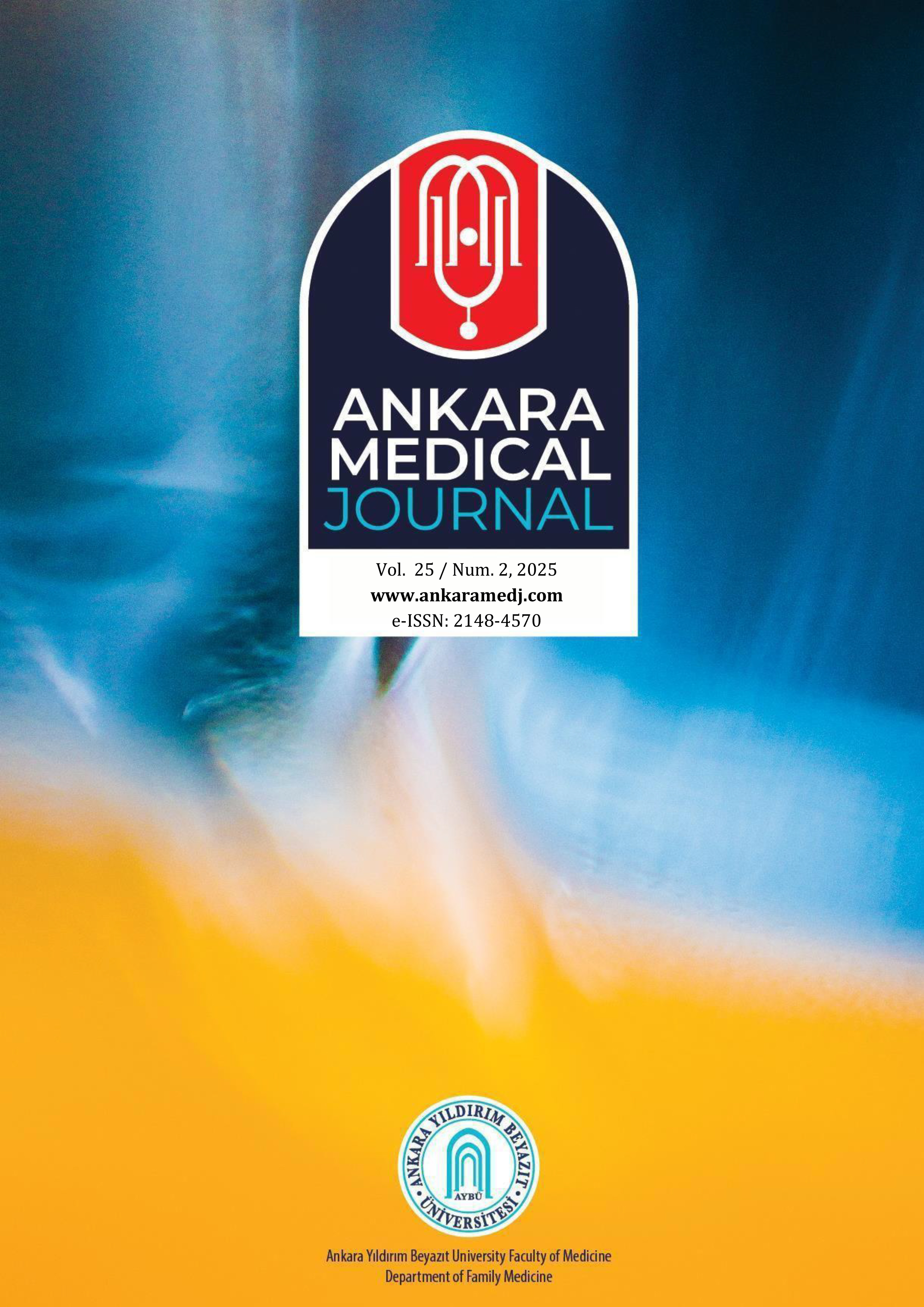Prevalence and the Risk Factors of Postpartum Depression in Ankara City Hospital
Begüm Kanbir1, Tarık Eren Yılmaz2, Duygu Ayhan Başer3, Emre Erdem Taş41Yatağan District Health Directorate, Muğla, Türkiye2Department of Family Medicine, University Of Health Sciences Gülhane Faculty Of Medicine, Ankara, Türkiye
3Department of Family Medicine, Hacettepe University School Of Medicine, Ankara, Türkiye
4Department of Gynecology And Obstetrics, T.C. Health Sciences University Ankara Bilkent City Hospital, Ankara, Türkiye
INTRODUCTION: Pregnancy and postpartum are processes that open to complications, not only gynecological & obstetric but also psychiatric complications are quite risky during the first months. Untreated Postpartum Depression (PPD) is a condition that may lead to mortality. Our aim with this study was to detect the relationship between sociodemographic information, and hemoglobin levels of postpartum women, with PPD levels.
METHODS: This cross-sectional study was conducted with 250 women who were in their postpartum period and admitted to the Ankara City Hospital for 2 months. Volunteers were subjected to a sociodemographic characteristics survey, the Edinburgh Postnatal Depression Scale (EPDS), and their hemoglobin values were recorded.
RESULTS: The prevalence of PPD was found to be 22.8%. The risk of depression is higher in younger mothers (p=0.042). There was a significant relationship between a low educational level and depression scores (p=0.020). The depression risk groups exhibited statistically significant relationships concerning spousal support during (p=0.007) and after (p=0.009) pregnancy. The risk of PPD is lower in women who receive spousal support. The EPDS score increased as hemoglobin levels decreased (p<0.001, r=-0.266). Mothers without depression risk had higher average breastfeeding numbers than others (p<0.01).
DISCUSSION AND CONCLUSION: Young age, early marriage, lack of education associated with high EPDS scores, spousal support during pregnancy and postpartum, breastfeeding practices and frequency, and high hemoglobin levels were found to have significant relationships with low EPDS scores.
Makale Dili: İngilizce
(2 kere indirildi)





